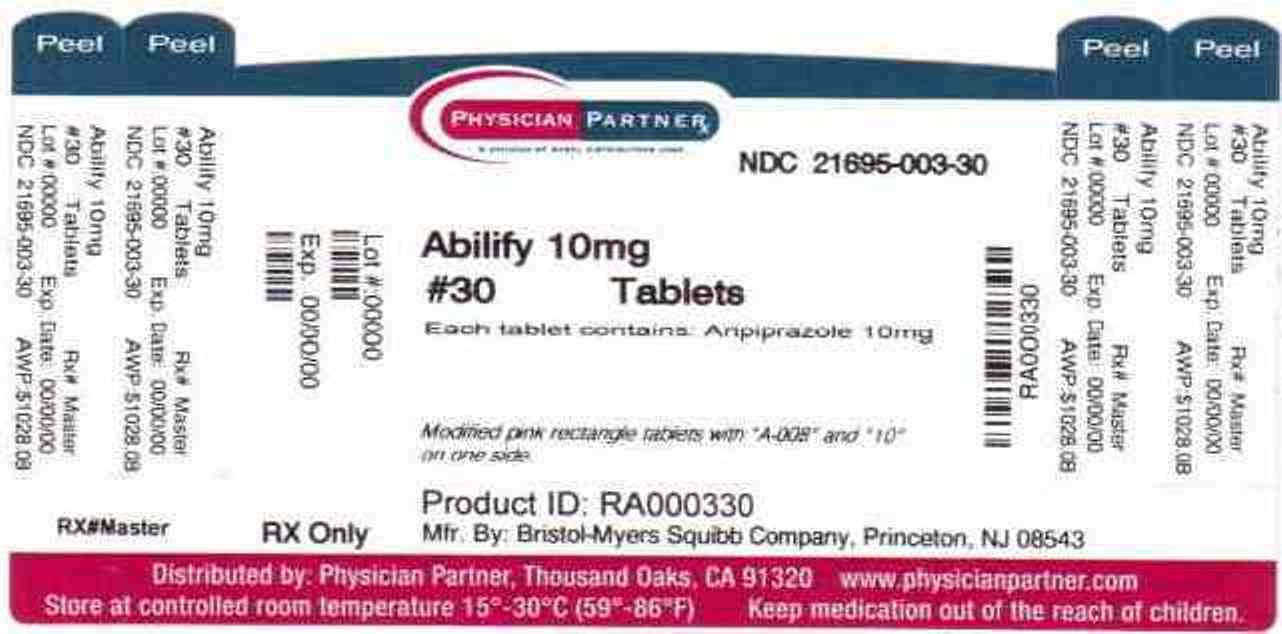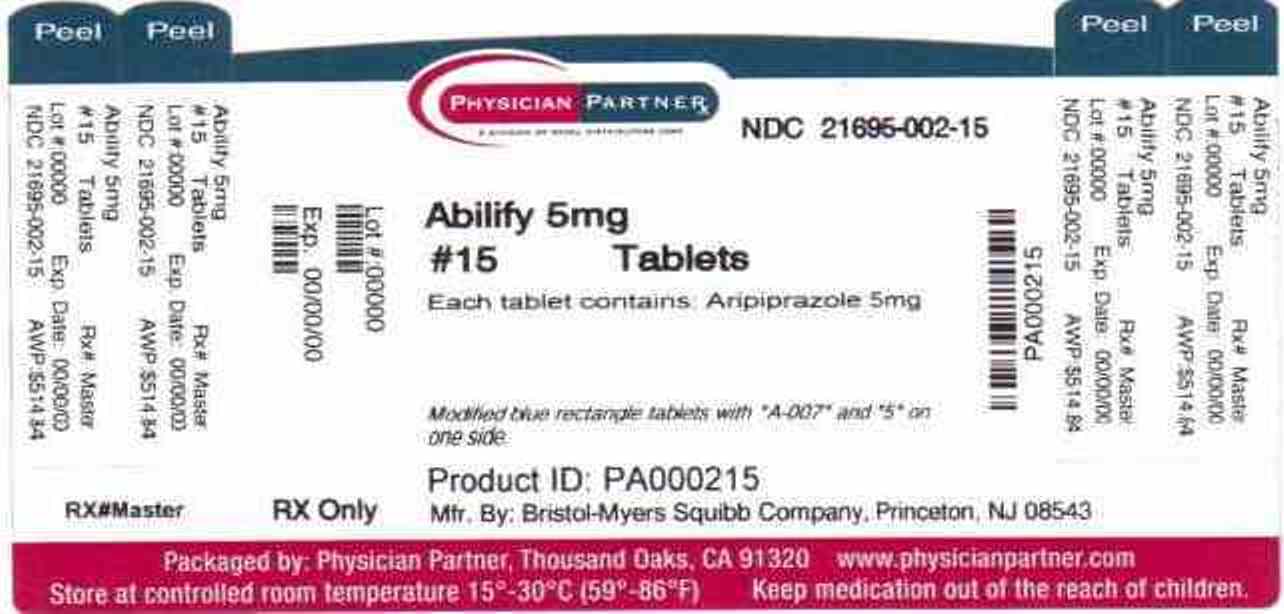Modern medicine has evolved so much so that sooner or later every breastfeeding mother needs to take it in one form or other. Medication that is present in mothers blood will transfer into her breast milk to some extent. Most drugs do so at low levels and pose no real risk to infants but then there are some exceptions. In This post will discuss whether Abilify | Aripiprazole Tablet is safe in breast-feeding or not.
What is Abilify | Aripiprazole Tablet used for?
ABILIFY is an atypical antipsychotic indicated as oral formulations for the: Treatment of schizophrenia (1.1) Adults: Efficacy was established in four 4-6 week trials and one maintenance trial in patients with schizophrenia (14.1) Adolescents (ages 13-17): Efficacy was established in one 6-week trial in patients with schizophrenia (14.1) Acute treatment of manic or mixed episodes associated with bipolar I disorder as monotherapy and as an adjunct to lithium or valproate (1.2) Adults: Efficacy was established in four 3-week monotherapy trials and one 6-week adjunctive trial in patients with manic or mixed episodes (14.2) Pediatric Patients (ages 10-17): Efficacy was established in one 4-week monotherapy trial in patients with manic or mixed episodes (14.2) Maintenance treatment of bipolar I disorder (1.2) Adults: Efficacy was established in one maintenance trial (14.2) Adjunctive treatment of major depressive disorder (MDD) (1.3) Adults: Efficacy was established in two 6-week trials in patients with MDD who had an inadequate response to antidepressant therapy during the current episode (14.3) Treatment of irritability associated with autistic disorder (1.4) Pediatric Patients (ages 6-17 years): Efficacy was established in two 8-week trials in patients with autistic disorder (14.4) as an injection for the: Acute treatment of agitation associated with schizophrenia or bipolar I disorder (1.5) Adults: Efficacy was established in three 24-hour trials in agitated patients with schizophrenia or manic/mixed episodes of bipolar I disorder (14.5) 1.1 Schizophrenia ABILIFY is indicated for the treatment of schizophrenia. The efficacy of ABILIFY was established in four 4-6 week trials in adults and one 6-week trial in adolescents (13 to 17 years). Maintenance efficacy was demonstrated in one trial in adults and can be extrapolated to adolescents [see CLINICAL STUDIES (14.1)]. 1.2 Bipolar I Disorder Monotherapy ABILIFY is indicated for the acute and maintenance treatment of manic and mixed episodes associated with bipolar I disorder. Efficacy was established in four 3-week monotherapy trials in adults and one 4-week monotherapy trial in pediatric patients (10 to 17 years). Maintenance efficacy was demonstrated in a monotherapy trial in adults and can be extrapolated to pediatric patients (10 to 17 years) [see CLINICAL STUDIES (14.2)]. Adjunctive Therapy ABILIFY is indicated as an adjunctive therapy to either lithium or valproate for the acute treatment of manic and mixed episodes associated with bipolar I disorder. Efficacy was established in one 6-week adjunctive trial in adults and can be extrapolated to pediatric patients (10 to 17 years) [see CLINICAL STUDIES (14.2)]. 1.3 Adjunctive Treatment of Major Depressive Disorder ABILIFY is indicated for use as an adjunctive therapy to antidepressants for the treatment of major depressive disorder (MDD). Efficacy was established in two 6-week trials in adults with MDD who had an inadequate response to antidepressant therapy during the current episode [see CLINICAL STUDIES (14.3)]. 1.4 Irritability Associated with Autistic Disorder ABILIFY is indicated for the treatment of irritability associated with autistic disorder. Efficacy was established in two 8-week trials in pediatric patients (aged 6 to 17 years) with irritability associated with autistic disorder (including symptoms of aggression towards others, deliberate self-injuriousness, temper tantrums, and quickly changing moods) [see CLINICAL STUDIES (14.4)]. 1.5 Agitation Associated with Schizophrenia or Bipolar Mania ABILIFY Injection is indicated for the acute treatment of agitation associated with schizophrenia or bipolar disorder, manic or mixed. "Psychomotor agitation" is defined in DSM-IV as "excessive motor activity associated with a feeling of inner tension". Patients experiencing agitation often manifest behaviors that interfere with their diagnosis and care (eg, threatening behaviors, escalating or urgently distressing behavior, or self-exhausting behavior), leading clinicians to the use of intramuscular antipsychotic medications to achieve immediate control of the agitation. Efficacy was established in three short-term (24-hour) trials in adults [see CLINICAL STUDIES (14.5)]. 1.6 Special Considerations in Treating Pediatric Schizophrenia, Bipolar I Disorder, and Irritability Associated with Autistic Disorder Psychiatric disorders in children and adolescents are often serious mental disorders with variable symptom profiles that are not always congruent with adult diagnostic criteria. It is recommended that psychotropic medication therapy for pediatric patients only be initiated after a thorough diagnostic evaluation has been conducted and careful consideration given to the risks associated with medication treatment. Medication treatment for pediatric patients with schizophrenia, bipolar I disorder, and irritability associated with autistic disorder is indicated as part of a total treatment program that often includes psychological, educational, and social interventions.
I am breastfeeding mother and I am using Abilify | Aripiprazole Tablet. Can it have any bad effect on my kid? Shall I search for better alternative?
Aripiprazole is the one and only active ingredient present in Abilify | Aripiprazole Tablet. Aripiprazole in itself is a low risk drug for lactation so it is easy to understand that Abilify | Aripiprazole Tablet also comes in category of Low Risk item while breastfeeding. Below is the summary of Aripiprazole in breastfeeding.
Statement of Manufacturer/Labeler about breastfeeding usage
8.3 Nursing Mothers Aripiprazole was excreted in milk of rats during lactation. It is not known whether aripiprazole or its metabolites are excreted in human milk. It is recommended that women receiving aripiprazole should not breast-feed.
Abilify | Aripiprazole Tablet Breastfeeding Analsys
Low RiskCAS Number: 129722-12-9
ts pharmacokinetic data (low oral bioavailability, large volume of distribution, moderately elevated molecular weight and high plasma protein binding) explains the negligible or zero passage into milk observed (Grover 2015, Nordeng 2014, Watanabe 2011, Lutz 2010, Schlotterbeck 2007). No problems were observed in infants whose mothers were taking it (Nordeng 2014, Tarikh 2014, Lutz 2010). The plasma levels of these infants were undetectable or very low (Watanabe 2011). Its relationship with prolactin is controversial because it lowers prolactin levels and has been used to treat prolactinomas and hyperprolactinemia induced by the use of other antipsychotics (Bakker 2016, Ranjbar 2015, Raghuthaman 2015, Safer 2013, Byerly 2009, Lorenz 2007, Goodnick 2002), but cases of decreased milk production have been reported (Frew 2015, Mendhekar 2006) and hyperprolactinemia triggered by aripiprazole has been reported (Sogawa 2016, Prost 2016, Saraf 2014, Mendhekar 2005, Ruffatti 2005). Due to its slow elimination, it may be worthwhile using other compatible antipsychotics with a shorter half-life, especially during the neonatal period and in case of prematurity (Uguz 2016). Monitor for possible drowsiness in the infant (Hale 2017 p.74).
Abilify | Aripiprazole Tablet Breastfeeding Analsys - 2
CAS Number: 129722-12-9
Limited information indicates that maternal doses of aripiprazole up to 15 mg daily produce low levels in milk, but until more data become available, an alternate drug may be preferred, especially while nursing a newborn or preterm infant.[1] Aripiprazole can lower serum prolactin in a dose-related manner, but cases of gynecomastia and galactorrhea have also been reported.

I am nursing mother and I have already used Abilify | Aripiprazole Tablet, what should I do?
Abilify | Aripiprazole Tablet is in the category of low risk, if you have already used it then its not a big deal if health and behavior of baby is good. However your health care provider shall be aware of the fact that you have used Abilify | Aripiprazole Tablet so you should inform him based on your convenience.
I am nursing mother and my doctor has suggested me to use Abilify | Aripiprazole Tablet, is it safe?
Though Abilify | Aripiprazole Tablet dose not comes in category of safe drugs rather it comes in category of low risk but if your doctor is aware that you are breastfeeding your baby and has still recommended it then its advantages must be outweighing the risks.
If I am using Abilify | Aripiprazole Tablet, will my baby need extra monitoring?
Not much monitoring required while using Abilify | Aripiprazole Tablet
Who can I talk to if I have questions about usage of Abilify | Aripiprazole Tablet in breastfeeding?
US
National Womens Health and Breastfeeding Helpline: 800-994-9662 (TDD 888-220-5446) 9 a.m. and 6 p.m. ET, Monday through Friday
UK
National Breastfeeding Helpline: 0300-100-0212 9.30am to 9.30pm, daily
Association of Breastfeeding Mothers: 0300-330-5453
La Leche League: 0345-120-2918
The Breastfeeding Network supporter line in Bengali and Sylheti: 0300-456-2421
National Childbirth Trust (NCT): 0300-330-0700
Australia
National Breastfeeding Helpline: 1800-686-268 24 hours a day, 7 days a week
Canada
Telehealth Ontario for breastfeeding: 1-866-797-0000 24 hours a day, 7 days a week
Drug Brands with same Active ingredients



